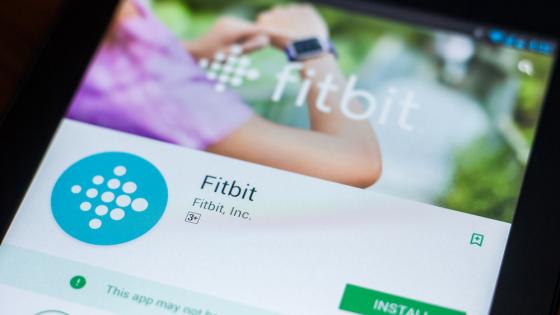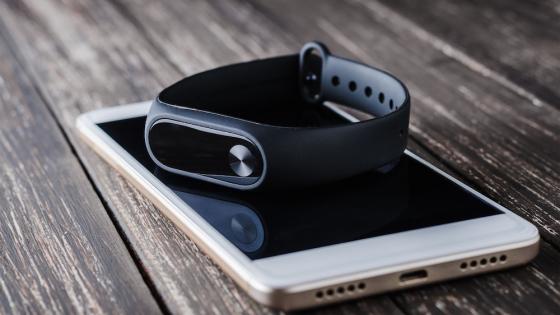On 15 December 2020, the European Commission approved the acquisition of Fitbit by Alphabet, subject to a number of commitments (European Commission 2020). Once a leader in the design and production of fitness trackers, Fitbit had seen its worldwide market share of the overall smartwatch segment fall to between 5% and 10% and was for sale. By acquiring Fitbit, Google would get access to the company’s product, data about the health and health habits of Fitbit users, and Fitbit’s expertise in designing efficient sensor technology for digital wear.
This case caused considerable agitation among some academic and policy circles and led to a number of contributions pressing the Commission to block the transaction (Caffarra and Valletti 2020, Bria et al. 2020, Caffarra and Crawford 2020, Privacy International 2019). The image conveyed by these contributions is apocalyptic: access to Fitbit data would help Google further dominate the market for online advertising and the synergies between these data and the data that Google already holds would ensure its eventual dominance in digital health. This would have dire consequences for privacy. Finally, the acquisition would reduce Google’s incentives to keep its Android ecosystem open to rival wearable products.
I believe that the discussion should now move from the realm of speculation to the sphere of evidence. It is in this spirit that I would like to explain why I find the Commission’s decision fully appropriate. What follows is my own, simplified, view of the economics of the case, stripped of its jargon, legal strappings and subtleties.
The role and standards of merger review
Merger review is meant to ensure that mergers and acquisitions do not hurt consumers by increasing prices, decreasing quality, limiting variety or dampening innovation. These potential harmful effects are evaluated by comparing the post-merger situation to the counterfactual, i.e. to the situation that would have prevailed without the merger.
A rejection of the proposed transaction would not have derailed Google’s plans to increase its presence in digital health. While Google might have found it difficult to match Fitbit’s specific software expertise immediately, it would have eventually overcome this obstacle. The likely counterfactual is then one of Google’s entry into the wearable health-monitoring sector – and its access to the corresponding data – would just have been delayed.
Explaining the decision
I was concerned about four main aspects of the acquisition: its effect on the digital health and wearable sectors, the use of Fitbit data to refine the targeting of online advertising, and potential threats to privacy.
1. Wearables
Smartwatches and health trackers are the most prominent example of the type of ‘digital wearables’ that many observers expect to pervade our daily lives soon. Ensuring vigorous competition in the sector must therefore be a prime goal of competition policy. Currently, smartwatches work in conjunction with a smartphone. There is therefore a legitimate concern that the acquisition might lead Google to restrict interoperability between rival watches and its Android ecosystem in order to increase Fitbit’s own sales and gather more health data.
Such arguments are assessed based on the parties’ ability and incentives to distort competition in that manner. It is likely that Google could degrade the link between Android and rival watches. To evaluate Google’s incentives, we need to weigh the benefits from additional sales of watches and data collection against the cost incurred by reducing the attractiveness of the Android ecosystem.
While the value of extra Fitbit sales can be estimated, the other elements of the trade-off cannot. In particular, there is no reliable evidence as to the value of Fitbit data. Indeed, there are good reasons to believe that the type of data collected by Fitbit is not especially valuable (there is currently no market for it) and it is not unique. Moreover, the reputational costs of reducing access to Android could be large for a company that has long relied on openness.1 Such factors are hard to quantify.
Nevertheless, the Commission was sufficiently concerned such incentives might materialise that it asked for a commitment to maintain interoperability with the Android platform for the next ten years.
2. Online advertising
Google’s strong position in online advertising stems from the number of users on its platform and its ability to target ads to better-defined audiences. With access to Fitbit data, Google might be able to target ads even better, gaining a further competitive advantage.
However, a transaction should not be blocked simply because it helps the new entity become more efficient. It is only if the acquisition of Fitbit deprived online ads rivals from accessing similar data that anticompetitive concerns might arise. This seems unlikely since health data are not particularly scarce (see Towne 2020).
The second issue is that Fitbit data might not materially enhance Google’s targeting ability. For all the talk about the prowess of online advertising, hard evidence is scarce. I could not find any evidence about the marginal targeting value of more precise customer data, let alone the marginal value of Fitbit-like data, which is the evidence that one would need to support the theory of harm. Indeed, the true value of ad targeting is still controversial and customers’ complaints that Google refuses to release sufficient information about the effectiveness of their online ads are hard to square with the idea that Google’s data advantage is overwhelming (Competition and Markets Authority 2020: 300–330, Appendix O, and Australian Competition and Consumer Commission 2019: 145–50).
3. Digital health
Big data analytics are a crucial part of the ongoing digitalisation of healthcare. The novelty is not the existence of data, but the ability to collect it in a systematic manner, store it and analyse it. Some observers fear that the combination of Google’s data with Fitbit data could enhance the merged entity’s analytical abilities to the point where it would dominate the field. I am not convinced.
The ability to do health analytics is widespread (see Table 1) and the existence of material synergies between data held by Google and Fitbit is unproven. Even if such synergies were sizeable, should we really object to increased efficiency for only one of several potential entrants into the sector?2
Table 1 Top 10 health analytics in the world, 2018
Source: https://blog.technavio.com/blog/top-10-healthcare-data-analytics-companies
4. Privacy
Some aspects of privacy clearly fall outside the scope of competition policy. Who has property rights over different types of data and how these data can be used, or sold, are essential societal issues, but competition authorities have no standing to address them.
This does not mean that privacy cannot be relevant when assessing an acquisition. The manner in which personal data are used is an important aspect of the quality of the service received. Evaluating the effect of a transaction on product quality is standard merger review fare. However, a merger’s potentially harmful effects on quality are unlikely to be severe as long as consumers have enough of a choice. If the acquisition were to lead to a deterioration of privacy for Fitbit users, they do have a large number of alternatives, especially once continued openness of the Android ecosystem is secured.
Some observers are concerned that the combination of Fitbit and Google data might enable health service providers to discriminate more finely between customers/patients. I have three problems with this argument. First, I have not seen any evidence of the vaunted synergies between the type of data controlled by Google and Fitbit data. The magnitude of such synergies would have to be established to proceed with such a theory of harm.
Second, why is having more information on individual health status and habits harmful? It can allow for better diagnostics, better treatment and, even, fairer health insurance rates. Do people who exercise want to pay more because claims to healthy living are hard to verify?
Third, if society feels that some type of personal (health) information ought not to be used to discriminate in the provision of health-related services, it should regulate. Giving lower driver-insurance rates to young women than to young men is no longer lawful in the US. One could as easily forbid the use of, say, existing conditions when pricing insurance.
Finally, should the merger really be blocked, despite the remedies offered, in order to prevent Google from fusing its data with Fitbit’s and use this package in the health sector? If combining data in a manner that leads to more discrimination in the health market is undesirable, then why use merger review to prevent such combinations from Google only? Regulation would be far superior in that it would at least preserve a level playing field.
Overall, burden of proof and standard of proof
Any sizeable acquisition by one of the large digital platforms is bound to attract the attention of competition specialists. This is as it should be. Competition policy enforcers can only gain from a broad brainstorming at the start of a case. On the other hand, post-decision comments should not be a mere repeat of pre-procedure arguments. In order to be useful, they should, like a decision, rely on substantial evidence and defer to the customary burden and standard of proofs. The standard of proof is a ‘balance of probabilities’. This does not allow the Commission to put an especially heavy weight on a low-probability event, however damaging it might be.
In my personal view, the suggested theories of harm have either been remedied or are not supported by evidence to the requisite legal standard. A negative decision would almost certainly have been overturned by the General Court. Blocking the transaction in such circumstances would not have been a bold policy move. In my mind, it would have been an abuse of power.
References
Australian Competition and Consumer Commission (2019), “Digital Platforms Inquiry: Final report”.
Bria, F, C Caffarra, G Crawford, W Christl, T Duso, J Ryan and T Valletti (2020), “Europe must not rush Google-Fitbit deal”, Politico, 2 July.
Caffarra, C, and G Crawford (2020), “Should Google be allowed to acquire Fitbit?”, interviewed by Tim Phillips, VoxEU.org, 5 October.
Caffarra, C, and T Valletti (2020), “Google Fitbit review: Privacy IS a competition issue”, VoxEU.org, 4 March.
Competition and Markets Authority (2020), “Online platforms and digital advertising: Market study final report”, 1 July.
European Commission (2020), “Mergers: Commission clears acquisition of Fitbit by Google, subject to conditions”, press release, 17 December.
Privacy International (2019), “Google wants to acquire Google and we should not let it”, 13 November.
Towne, R (2020), “Data Quality in an Abundance of Electronic Health Information for Electronic Clinical Quality Measures (eCQMs)”, Ninja Insights, 1 October.
Endnotes
1 The importance of this reputation for the Android business model is confirmed by internal documents.
2 Other potential ‘disruptive entrants’ include Amazon, Apple, CVS Health, Facebook and IBM. See HealthITAnalytics (2018), “Top 10 Disruptive Companies to Watch in the Healthcare Space”, 5 July, https://healthitanalytics.com/news/top-10-disruptive-companies-to-watch-in-the-healthcare-space.




